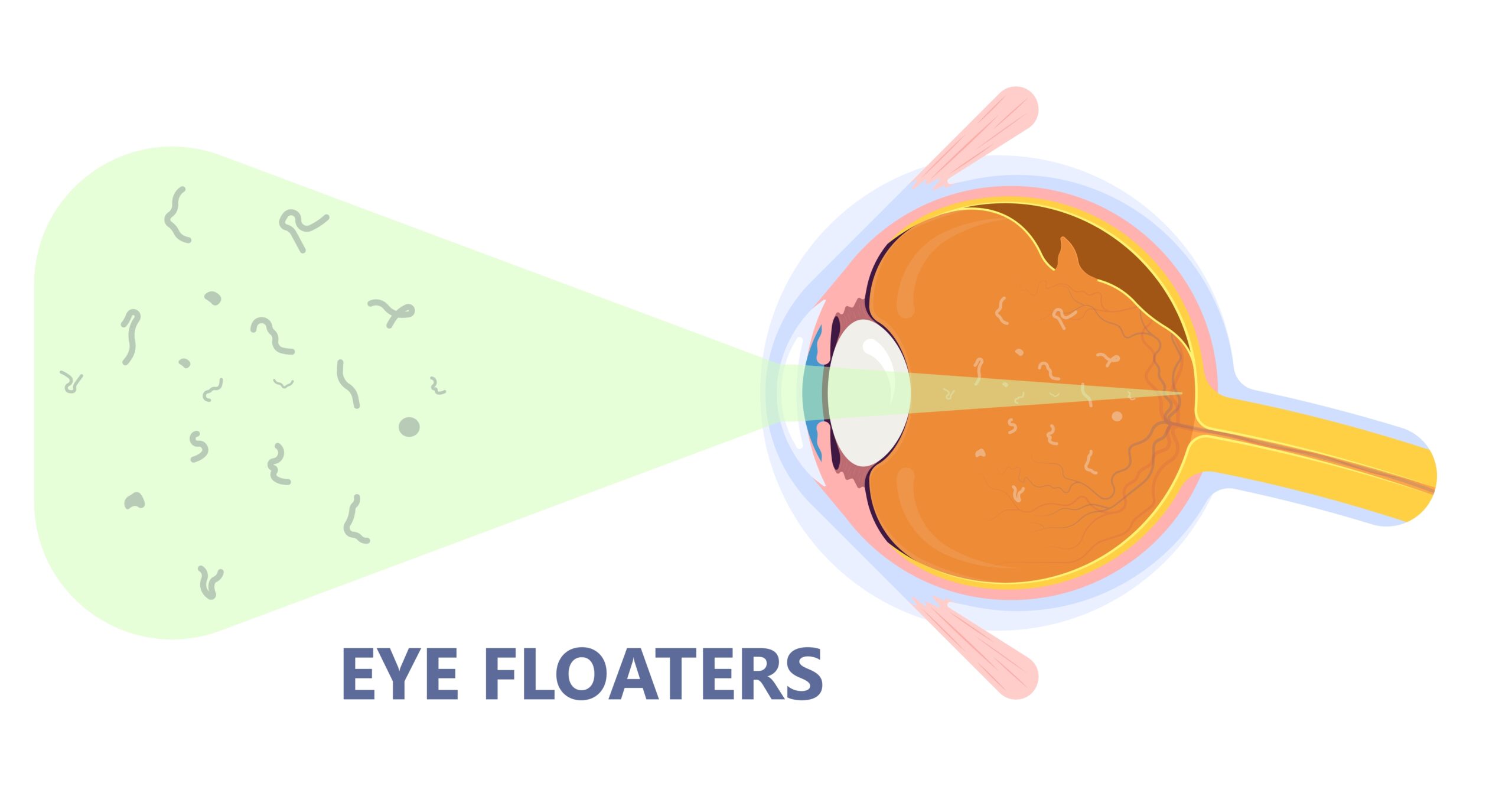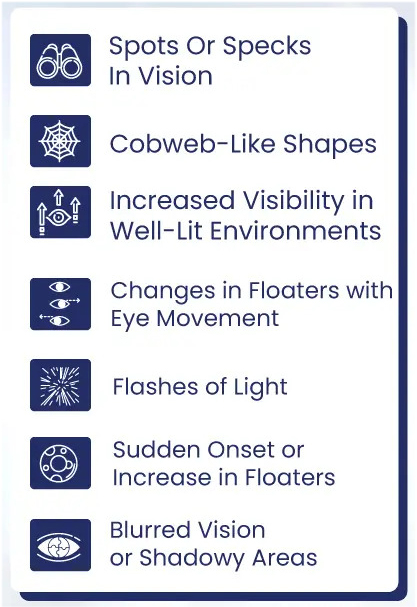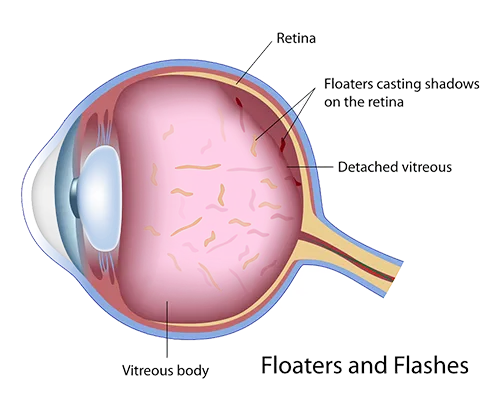
Eye Flashes and Eye Floaters
Eye floaters and flashes are common visual disturbances that many people experience at some point, and although they may be unsettling, they are often harmless. Floaters typically appear as small, shadowy shapes—such as specks, threads, or cobweb-like strands—that seem to float across your vision. These are more noticeable when looking at bright or uniform backgrounds like a clear sky or a white wall. On the other hand, flashes of light are brief, sudden bursts or streaks of light that can appear in your peripheral vision. Both of these phenomena are typically caused by changes in the gel-like substance (vitreous) inside the eye as you age. However, while they can often be benign, they sometimes signal more serious eye conditions, such as retinal tears or detachments, which require prompt attention from an eye care professional. Therefore, it’s important to monitor the frequency and severity of these symptoms and seek an eye exam if they become persistent or accompanied by other visual changes, like loss of vision or an increase in floaters.
Symptoms
Floaters are small, shadowy shapes that appear to move across your field of vision, particularly when looking at a plain, bright background. They can take different forms, such as small black dots, transparent string-like shapes, or irregular, cobweb-like lines or rings. You may also notice dark, shadowy shapes that seem to drift away when you try to look at them directly, or flecks and globs that move as you shift your eyes. While floaters are usually harmless, they can be distracting and bothersome. Eye flashes, on the other hand, are sudden bursts or streaks of light that may appear in your vision. These flashes often occur when the vitreous gel inside your eye pulls on the retina, and although they can sometimes be a normal part of aging, they may also indicate a more serious issue, such as a retinal tear or detachment. If you’re experiencing flashes, it’s important to seek medical attention promptly, as these symptoms could signal a risk of vision loss. Regular eye exams are essential to assess the cause of floaters and flashes, ensuring the overall health of your eyes.


Treatment
We recognize that while eye flashes and floaters are often not serious and may not require immediate treatment, they can still affect your vision and overall quality of life. If treatment becomes necessary, we prioritize non-surgical approaches and collaborate with you to create a tailored plan that addresses your specific needs. This plan may involve lifestyle changes, such as adjustments to daily habits or environmental factors, to help alleviate symptoms. In cases where surgical intervention is required, we are committed to connecting you with experienced specialists and providing the care and guidance you need every step of the way. Our goal is to ensure that your vision remains healthy and that you experience minimal disruption to your daily activities.

